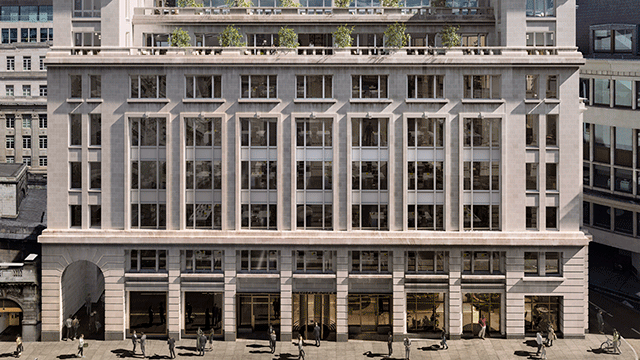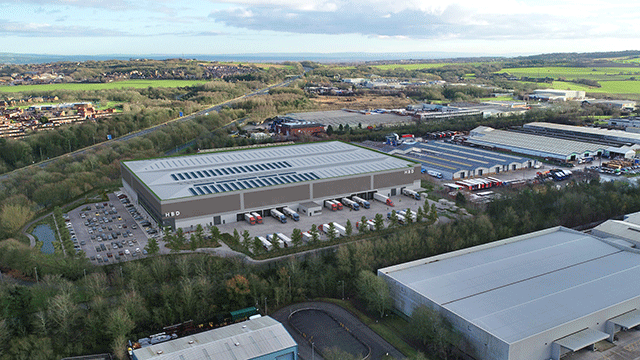Redundant offices are providing the budget hotel chains with a unique opportunity for city-centre expansion. Amanda Seidl reports.
Granada’s announcement last week of three more city-centre sites for its Travelodge budget hotel chain is the latest development in the mini boom gripping the hotel sector. Granada and Whitbread are rolling out ambitious expansion programmes to open units in major city centres.
In the past decade, the branded budget hotel sector has grown from nothing to around 400 hotels and by 1997 the number of bedrooms in purpose-built budget hotels will total 20,000. But the sector still accounts for a tiny percentage of the total hotel market. In the UK, budget hotels represent just 3% of the market compared with 12% in the US and 15% in France.
Kevin Jackson, property development manager of Granada Roadside Restaurants and Travelodge, says: “We think there is demand for double the current supply of budget hotel rooms.”
Granada’s takeover of Forte’s Travelodges earlier this year has given it a dominant stake: over 6,000 bedrooms in some 200 hotels. Whitbread’s Travel Inn is running second with 118 hotels and a target of 200 units by 1998. Frank Croston, hospitality analyst at Arthur Andersen, believes there is plenty of potential in the sector. “There are almost no city-centre budget hotels at the moment so there is a huge expansion potential before the sector hits capacity.”
While the recession hit the luxury sector in the early 1990s, it helped to establish the budget concept with business and leisure travellers. “The key to success is consistency of product,” explains Michael Brooker of Oriel Leisure. By providing the same standard of accommodation at the same price in each location, budget hotels offer customers a guarantee that they will not be disappointed. The “no frills” approach appeals to those who find traditional hotels intimidating. “They have introduced hotels to a new audience,” explains Russell Kett of HVS hotel consultancy.
Until two years ago, market leaders Whitbread and Forte limited development to motels on land beside service stations and restaurants. But the property slump in city-centre office occupancy provided the hotel chains with an opportunity to bring the concept into major city centres.
“The recession created a supply of redundant office buildings at levels of investment we could afford,” explains Hugh Siegel, managing director of Whitbread Property.
Converting 1960s office buildings is a cost-effective way of finding well-located city-centre sites, so long as the floorplate suits a hotel use. Higher occupancy levels in city centres help to balance higher development and operating costs, but double the number of bedrooms is required to make the concept viable. Whereas roadside Travel Inns typically have about 40 bedrooms, the city centre equivalent needs to be around 80 to 100 rooms. Whitbread is looking for a minimum of 4,645m2 (50,000 sq ft) in London. “The concept can survive in city centres if more rooms are added,” says Kett.
Parking provision
A potential problem area is parking. Having evolved out of the motel concept, most budget hotels operate on one parking space per bedroom, but this ratio is unrealistic for city-centre hotels. In central London, Whitbread is willing to accept much lower parking provision, but in provincial cities many customers will still expect to be able to park at the hotel. “The appeal of the lodge product is in part the ease of parking,” says Croston. “But downtown parking is expensive and insecure. That presents a challenge for the operators.”
So far, Whitbread has snapped up three sites in London: the high-profile Riverside building at County Hall where it will create both a Marriott and a Travel Inn hotel; Haliburton House next to Putney Bridge acquired from MEPC; and the former Camden council offices at 141 Euston Road which it bought from Friends’ Provident and CIS.
It is competing for central London properties with niche players such as the French Orion chain which already has three sites for conversion to aparthotels: Northumberland Avenue, off Trafalgar Square, where is will lease back the ground floor to the Royal Commonwealth Society; Goswell Road in the City; and Land Securities’ Turnstile House in High Holborn where it will pay a base rent plus a share of profits.
Granada has yet to secure its first London Travelodge. Its recent acquisitions focused on provincial cities with sites in Broad Street, Birmingham, downtown Milton Keynes and central Manchester. In Birmingham it acquired the 4,970m2 (53,500 sq ft) Granville House, an eight-storey 1960s office buildings opposite Argent’s Brindleyplace. Both groups are looking at Edinburgh – where Whitbread has just opened a Travel Inn – Glasgow and York.
Bass’ Holiday Inn is gaining ground with its Holiday Inn Express. It has a joint venture with Hospitality Developments which will retain the freehold of the hotels. Scottish & Newcastle is also keen to build up its Lodge Inn chain. It has seven existing lodges, but is working on another eight, including a 102-bedroom hotel at Gatwick. French budget group Accor is also searching for sites for its Novotel hotels.
Competition between the rival hotel chains is mounting, but they are not the only buyers in the market. Residential conversions and the improvement in demand for refurbished offices has made well-located buildings with parking harder and more expensive to acquire. “We have to carefully balance costs with projected revenue,” says Siegel.
“Two years ago, they could have had their pick of the office buildings,” says John Toogood of DTZ Debenham Thorpe. “But the tide has turned.”










